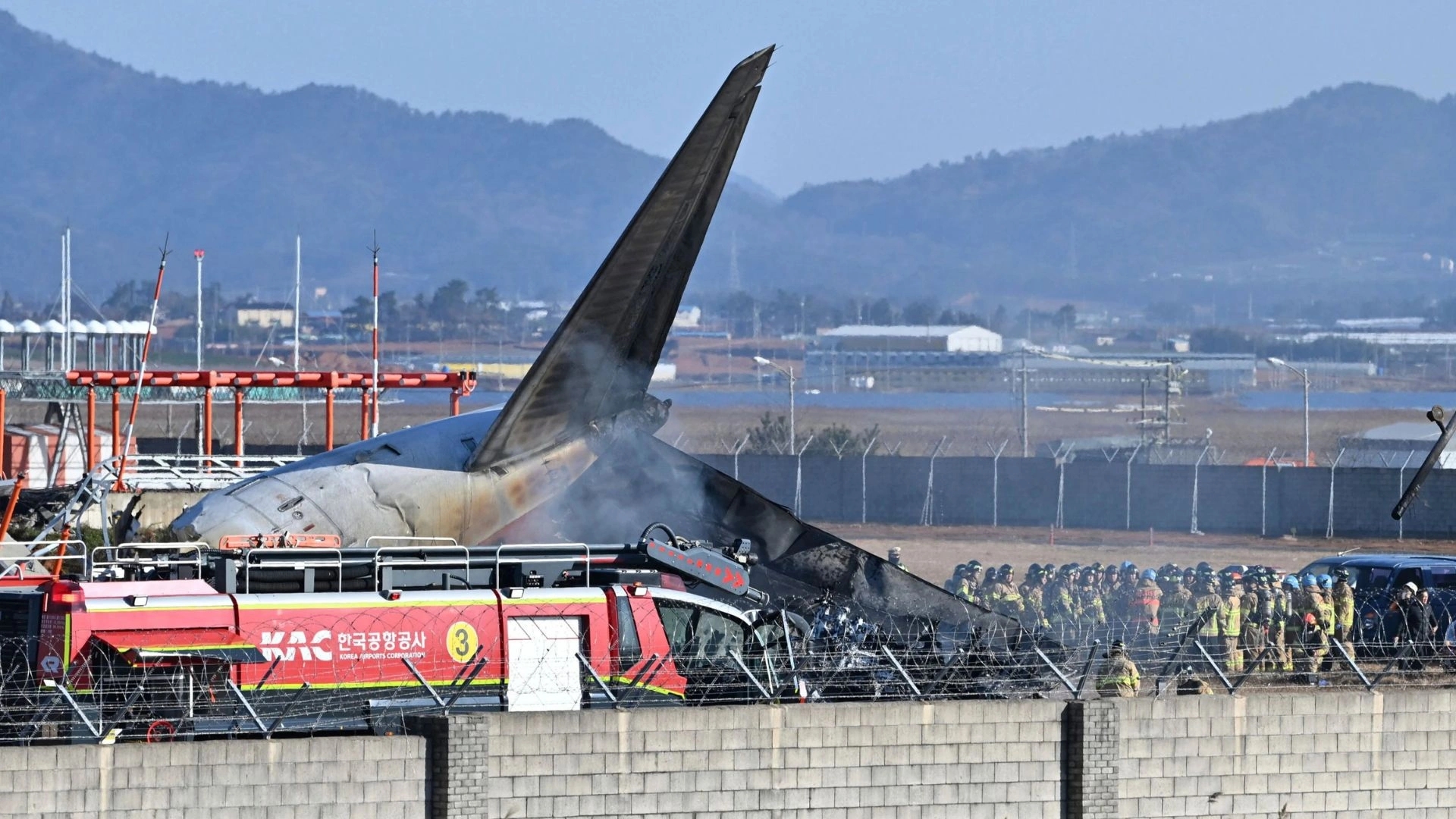On Sunday morning, the South Korean skies turned somber as Jeju Air flight 7C2216, carrying 181 people, crashed during its landing at Muan International Airport. The plane, returning from Bangkok, veered off the runway, collided with a fence, and caught fire, making it one of the deadliest aviation accidents in South Korea’s recent history. By the time firefighters extinguished the blaze, it was clear that the chances of survival were minimal, with only two survivors confirmed.
The scale of the disaster was heart-wrenching, with local media broadcasting horrific footage of the wreckage engulfed in flames. Passengers were thrown from the aircraft upon impact, raising concerns about the viability of any survival. Emergency response teams worked tirelessly as the task of identifying the deceased proved to be a daunting challenge.
In a somber televised address, Jeju Air’s CEO, Kim E-bae, took full responsibility for the tragedy, apologizing deeply for the loss. “Regardless of the cause, I take full responsibility as the CEO,” Kim said. He expressed heartfelt condolences to the victims’ families, pledging that the airline would work closely with authorities to resolve the situation and provide aid to the survivors’ families.
Authorities have already launched an investigation into the crash, and preliminary reports suggest that a possible landing gear malfunction, potentially caused by a bird strike, may have played a role. Weather conditions are also being examined as potential contributing factors. The Jeju Air spokesperson reassured the public that the aircraft, which had been in service for 15 years, had a clean safety record with no prior malfunctions.
Recovery operations at the crash site are ongoing, with the South Jeolla province authorities mobilizing all available rescue teams. President Choi Sang-mok visited the scene, offering condolences and directing the response efforts. Meanwhile, the presidential office convened an emergency meeting to ensure that all resources are deployed effectively.
Jeju Air, a prominent low-cost carrier, operates both domestic and international flights, including routes to Thailand, Japan, and the Philippines. This tragic incident comes on the heels of another aviation disaster in the region, highlighting the urgent need for improved safety measures.
Jeju Air has pledged full cooperation with the ongoing investigation and promised to provide continued support to the grieving families. “We pray for the peace of those who lost their lives,” Kim concluded.
ALSO READ: What Went Wrong In The South Korea’s Muan Jeju Air Plane Crash?






















